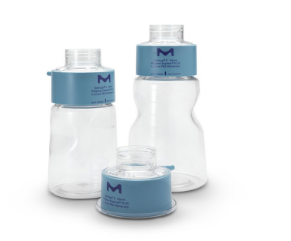
Photo caption- Stericup® E and Steritop® E filtration Systems
Merck, a leading science and technology company, has launched an enhanced Design for Sustainability (DfS) framework, a unique approach to holistically integrate sustainability into Life Science products, systems and services.
With the introduction of DfS, Merck leads the life science industry in ensuring that sustainability is at the forefront of each stage of the product life cycle. This important strategic initiative supports the company’s commitment to integrate sustainability into all value chains by 2030, as outlined in its sustainability strategy.
“This approach has had a positive impact on Merck’s business internally, and now it also will benefit our customers across academia, pharma and industry — helping them make more informed decisions and surpass their own sustainability goals,” said Chris Ross, interim business sector head, Life Science, at Merck. “Using the DfS framework, Merck will offer a deeper level of data-driven insight to help guide customer conversations around greener, more sustainable alternatives.”
The DfS framework comprises three parts — Development, Consulting and Re-engineering — in which Merck identifies the sources of environmental impacts, defines relevant targets and measures product sustainability characteristics.
The DfS program is a cornerstone of Merck’s commitment to delivering sustainable business practices throughout the lifecycle of its Life Science products.




